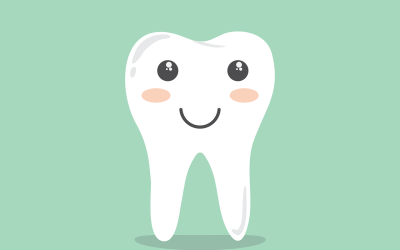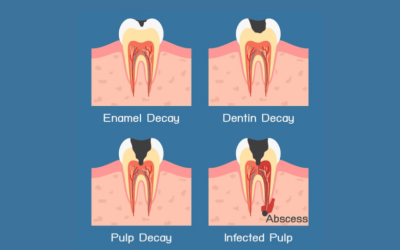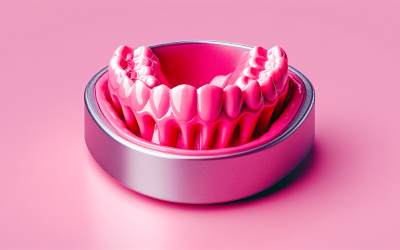So you wake up one morning, ready to take on the day, but there’s just one problem: a pounding toothache that’s bringing tears to your eyes. We’ve all been there, and it’s no secret that dealing with a severe toothache can be an excruciating ordeal.
Whether it’s a sharp, shooting pain or a constant throbbing sensation, a toothache can leave you feeling completely helpless and desperate for relief.
But fear not, for in this article, we’re going to explore the causes, symptoms, and remedies for a severe toothache, so you can finally bid farewell to that unbearable agony and get back to living pain-free.
Causes of Severe Toothache
Dental Decay
One of the leading causes of severe toothache is dental decay, also known as tooth decay or cavities. When bacteria build up on the teeth, it forms plaque, which gradually erodes the enamel and exposes the sensitive inner layers of the tooth. This can lead to intense pain and discomfort.
Gum Disease
Another common cause of severe toothache is gum disease, also known as periodontal disease. Gum disease occurs when bacteria infect the gums, causing inflammation and damage to the tissues that support the teeth. As the disease progresses, it can lead to tooth loss and excruciating pain.
Tooth Abscess
A tooth abscess is a pocket of pus that forms at the root of an infected tooth. It is often caused by untreated tooth decay or trauma to the tooth. Abscesses can cause severe toothache, as well as swelling, redness, and tenderness in the affected area.
Tooth Fracture
A fractured tooth can also result in severe toothache. Fractures can occur due to trauma, biting on hard objects, or a weakened tooth structure. When a tooth is fractured, the nerve endings in the tooth can become exposed, leading to intense pain.
Teeth Grinding or Clenching
Bruxism, or teeth grinding and clenching, can cause severe toothache. The excessive force applied to the teeth can wear down the enamel, causing sensitivity and pain. Over time, bruxism can lead to tooth fractures and other dental problems.
Symptoms of Severe Toothache
Sharp and Intense Pain
One of the primary symptoms of severe toothache is a sharp and intense pain in the affected tooth or surrounding area. The pain can range from a constant ache to a sudden, shooting pain that worsens with pressure or temperature changes.
Throbbing or Pulsating Sensation
Many individuals with severe toothache report experiencing a throbbing or pulsating sensation in the affected tooth. This sensation can be constant or intermittent and is often accompanied by intense pain.
Swelling in the Face or Jaw
Swelling in the face or jaw is a common symptom of severe toothache, particularly if an abscess or infection is present. The swelling may be localized to the area around the affected tooth or may extend to the cheeks, jaws, or even the neck.
Sensitivity to Temperature
Individuals with severe toothache often experience increased sensitivity to hot or cold temperatures. Drinking hot or cold beverages, or even breathing in cold air, can trigger sharp pain in the affected tooth.
Foul Taste or Odor in the Mouth
In some cases, individuals with severe toothache may notice a foul taste or odor in their mouth. This can be a sign of an infection or abscess and should not be ignored.
Diagnosing Severe Toothache
Physical Examination
To diagnose the cause of severe toothache, a dentist will first perform a physical examination of the mouth. They will visually inspect the teeth, gums, and other oral structures to look for any signs of decay, gum disease, or dental trauma.
Dental X-Rays
Dental X-rays are an essential tool in diagnosing severe toothache. X-rays can reveal hidden dental problems, such as tooth decay, fractures, abscesses, or impacted teeth. They provide a comprehensive view of the teeth and jaw, helping the dentist determine the underlying cause of the toothache.
Pulp Vitality Test
A pulp vitality test may be performed to assess the health of the tooth’s pulp, which contains the nerves and blood vessels. A cold stimulus, such as ice or a refrigerant spray, is applied to the tooth to evaluate how the pulp responds. If there is a delayed or heightened sensitivity, it may indicate an infection or inflammation within the tooth.
Periodontal Examination
A periodontal examination is conducted to evaluate the health of the gums and supporting structures. The dentist will measure the depth of the gum pockets around each tooth, look for signs of inflammation or bleeding, and assess the overall gum health. This is crucial in detecting gum disease as a cause of the severe toothache.
Visual Inspection of the Affected Tooth
During the examination, the dentist will visually inspect the affected tooth in detail. They will look for signs of decay, fractures, or other visible damage. The dentist may also use tools such as dental probes to gently test the tooth’s sensitivity and determine the extent of the pain.
Treatment Options for Severe Toothache
Over-the-Counter Pain Relievers
For temporary relief, over-the-counter pain relievers such as ibuprofen or acetaminophen can help alleviate the severe toothache. These medications help reduce pain and inflammation, providing short-term relief until proper dental treatment can be obtained.
Prescription Medications
In some cases, the dentist may prescribe stronger pain medications, such as opioids, to manage severe toothache. These medications are typically reserved for more severe cases and should be taken under the dentist’s supervision.
Topical Analgesics
Topical analgesics, such as benzocaine gel, can be applied directly to the affected tooth or gums to numb the area and provide temporary relief from severe toothache. These topical treatments are available over the counter and can be useful in alleviating pain while awaiting dental treatment.
Antibiotics
When an infection is causing severe toothache, antibiotics may be prescribed. Antibiotics help eliminate the infection and reduce inflammation. However, it’s important to note that antibiotics alone are not a definitive treatment for severe toothache and should be used in conjunction with appropriate dental care.
Dental Procedures
The most effective long-term treatment for severe toothache is addressing the underlying cause through various dental procedures. These procedures may include:
- Dental fillings or restorations to treat dental decay
- Periodontal treatment to manage gum disease
- Root canal therapy to remove infected pulp and save the tooth
- Tooth extraction for irreparably damaged or infected teeth
- Dental crowns or bonding to repair fractured teeth
Prevention of Severe Toothache
Brushing and Flossing
Practising good oral hygiene by brushing twice a day and flossing daily is crucial in preventing severe toothache. Brushing removes plaque and bacteria from the teeth’s surfaces, while flossing helps clean between the teeth and along the gumline.
Regular Dental Visits
Regular dental check-ups and cleanings are essential for preventing severe toothache. Dentists can detect early signs of decay, gum disease, or other dental problems before they escalate into severe toothache. Professional cleanings help remove plaque and tartar buildup, reducing the risk of dental issues.
Avoiding Sugary Foods and Drinks
Limiting the consumption of sugary foods and beverages helps prevent severe toothache. Sugar promotes the growth of bacteria in the mouth, leading to dental decay and gum disease. Opt for healthier alternatives and brush your teeth after consuming sugary substances.
Using Fluoride Products
Using fluoride toothpaste and mouthwash can strengthen the enamel and protect against tooth decay. Fluoride helps remineralize the teeth, making them more resistant to acid attacks from bacteria.
Wearing Mouthguards
If you engage in activities that pose a risk of dental trauma, such as sports or teeth grinding, wearing a mouthguard can prevent severe toothache. Mouthguards cushion the teeth and protect them from injury.
Home Remedies for Severe Toothache
Saltwater Rinse
A saltwater rinse can help alleviate severe toothache by reducing inflammation and killing bacteria in the mouth. Mix half a teaspoon of salt in eight ounces of warm water and swish it around in your mouth for 30 seconds before spitting it out.
Cold Compress
Applying a cold compress to the affected side of your face can help numb the area and reduce swelling and pain. Simply wrap a bag of ice or a cold pack in a thin cloth and hold it against your cheek for 15 minutes at a time.
Cloves or Clove Oil
Clove oil has natural numbing properties that can provide temporary relief from severe toothache. Soak a cotton ball in clove oil and gently apply it to the affected tooth or gums. Alternatively, you can also place a whole clove directly on the tooth for relief.
Garlic
Garlic has antibacterial properties and can help reduce pain and inflammation associated with severe toothache. Crush a garlic clove and mix it with a pinch of salt before applying it to the affected area. Leave it on for a few minutes, then rinse your mouth with water.
Peppermint Tea
Peppermint tea can help alleviate severe toothache thanks to its numbing and soothing properties. Steep a peppermint tea bag in hot water, allow it to cool, and then hold it against the affected tooth or gums for a few minutes.
When to See a Dentist for Severe Toothache
Persistent or Worsening Pain
If you experience persistent or worsening pain despite home remedies or over-the-counter pain relievers, it is crucial to see a dentist. Severe toothache may indicate a serious underlying issue that requires professional dental treatment.
Swelling or Abscess
If you notice swelling in your face or jaw, especially in conjunction with severe toothache, it may be a sign of an abscess or infection. These conditions require prompt dental attention to prevent complications.
Fever
A fever accompanying severe toothache can indicate an infection spreading from the tooth to the surrounding tissues. This requires immediate dental intervention to prevent the infection from spreading further.
Difficulty Swallowing or Breathing
If your severe toothache is accompanied by difficulty swallowing or breathing, it may indicate a severe infection or abscess affecting the airway. Seek emergency dental care or go to the nearest emergency room immediately.
Bleeding Gums
Severe toothache accompanied by bleeding gums may indicate advanced gum disease or other dental problems. Consulting a dentist can help diagnose and treat the underlying cause of the bleeding gums and toothache.
Complications of Untreated Severe Toothache
Spread of Infection
Untreated severe toothache can lead to the spread of infection beyond the tooth and gums. The infection can reach the jawbone, surrounding facial structures, or even spread to other parts of the body through the bloodstream. This can result in more severe health complications.
Tooth Loss
Severe toothache, if left untreated, can cause irreversible damage to the tooth and its supporting structures. The tooth may become loose or fall out, resulting in tooth loss. Tooth loss can have various impacts on oral health, including bite problems and difficulty chewing.
Bone Loss
Prolonged severe toothache can lead to the loss of bone in the jaw that supports the teeth. The bone loss can weaken the jaw, making it more susceptible to fractures and affecting the stability of the remaining teeth.
Abscess Formation
Untreated severe toothache can result in the formation of dental abscesses. These pockets of pus can lead to intense pain, swelling, and systemic infections if left untreated. Abscesses often require prompt dental treatment, including root canal therapy or tooth extraction.
Systemic Infection
In rare cases, severe toothache caused by an untreated infection can lead to a systemic infection. The bacteria can enter the bloodstream and spread to other parts of the body, affecting vital organs and potentially becoming life-threatening. Prompt dental treatment is crucial to prevent such complications.
Exercises to Relieve Severe Toothache
Jaw Exercises
Performing gentle jaw exercises can help alleviate severe toothache caused by teeth grinding or tension in the jaw muscles. Try opening and closing your mouth smoothly, moving it from side to side, and gently massaging the jaw joint.
Cheek and Tongue Exercises
Exercising the muscles of the cheeks and tongue can provide relief from severe toothache. Try puffing out your cheeks and then releasing the air slowly. Additionally, push your tongue against the roof of your mouth and hold for a few seconds before relaxing.
Gum Massage
Massaging the gums can help stimulate blood flow and relieve severe toothache. Use your clean fingers or a soft-bristled toothbrush to gently massage the gums in circular motions around the affected tooth.
Facial and Neck Stretches
Stretches targeting the facial and neck muscles can help alleviate tension and reduce pain associated with severe toothache. Gently rotate your neck from side to side, tilt your head backward and forward, and perform gentle facial stretches.
Relaxation Techniques
Engaging in relaxation techniques, such as deep breathing exercises or guided meditation, can help manage the pain and discomfort of severe toothache. Focus on deep, slow breaths and visualize yourself in a calm and relaxing setting.
Tips for Managing Severe Toothache
Avoiding Chewing on the Affected Side
To prevent further irritation and pain, avoid chewing on the side of the mouth where the severe toothache is located. Opt for softer foods or chew on the opposite side.
Using a Soft Toothbrush
Using a soft-bristled toothbrush can help minimize discomfort while brushing your teeth, especially if you have severe toothache. Avoid applying excessive pressure or scrubbing motions that can aggravate the pain.
Sleeping with an Elevated Pillow
When experiencing severe toothache, elevating your head with an extra pillow while sleeping can help reduce blood flow to the affected area, providing some relief from the pain.
Avoiding Hot or Cold Foods
If your severe toothache is triggered by temperature changes, it’s best to avoid consuming extremely hot or cold foods and drinks. Opt for lukewarm or room temperature options to minimize discomfort.
Maintaining Good Oral Hygiene
Practicing good oral hygiene habits, such as brushing and flossing regularly, can help prevent further dental issues that could worsen severe toothache. Be gentle while cleaning the teeth and gums to avoid additional pain or irritation.










